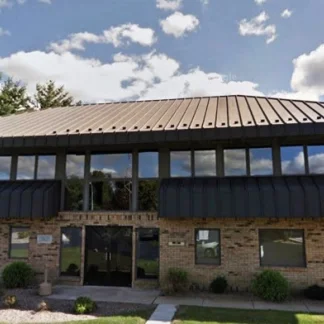Addiction Treatment Strategies
Addiction Treatment Strategies is a private rehab located in Edwardsville, Illin...
DeRousse Counseling and DUI Services offers an outpatient program for substance abuse and addiction issues. DeRousse Counseling and DUI Services is located in Edwardsville, Illinois.
They offer: DUI evaluation, Level One Risk Education, Level II Moderate Risk Early Intervention, Level II Significant Risk Treatment, and Level III High Risk Treatment. They specialized in treating clients who are seeking reinstatement of their driver’s license. Mr. DeRousse holds a Bachelor of Science degree in Social Work from Southern Illinois University at Edwardsville.
Contact us for more information: (618) 692-4384

Connect with DeRousse Counseling and DUI Services by calling their admissions team directly.
(618) 692-4384 Website Get DirectionsState Licenses are permits issued by government agencies that allow rehab organizations to conduct business legally within a certain geographical area. Typically, the kind of program a rehab facility offers, along with its physical location, determines which licenses are required to operate legally.
State License: Illinois
Cognitive Behavioral Therapy (CBT) is a therapy modality that focuses on the relationship between one's thoughts, feelings, and behaviors. It is used to establish and allow for healthy responses to thoughts and feelings (instead of unhealthy responses, like using drugs or alcohol). CBT has been proven effective for recovering addicts of all kinds, and is used to strengthen a patient's own self-awareness and ability to self-regulate. CBT allows individuals to monitor their own emotional state, become more adept at communicating with others, and manage stress without needing to engage in substance abuse.
Group therapy is any therapeutic work that happens in a group (not one-on-one). There are a number of different group therapy modalities, including support groups, experiential therapy, psycho-education, and more. Group therapy involves treatment as well as processing interaction between group members.
In individual therapy, a patient meets one-on-one with a trained psychologist or counselor. Therapy is a pivotal part of effective substance abuse treatment, as it often covers root causes of addiction, including challenges faced by the patient in their social, family, and work/school life.
Group therapy is any therapeutic work that happens in a group (not one-on-one). There are a number of different group therapy modalities, including support groups, experiential therapy, psycho-education, and more. Group therapy involves treatment as well as processing interaction between group members.
In individual therapy, a patient meets one-on-one with a trained psychologist or counselor. Therapy is a pivotal part of effective substance abuse treatment, as it often covers root causes of addiction, including challenges faced by the patient in their social, family, and work/school life.
In individual therapy, a patient meets one-on-one with a trained psychologist or counselor. Therapy is a pivotal part of effective substance abuse treatment, as it often covers root causes of addiction, including challenges faced by the patient in their social, family, and work/school life.
Addiction Treatment Strategies is a private rehab located in Edwardsville, Illin...
Intensive Outpatient Care is a private rehab located in Edwardsville, Illinois. ...
Chestnut Health Systems - Pontoon Beach Support Housing provides clinical suppor...
Chestnut Health Systems provides inpatient and outpatient services for individua...